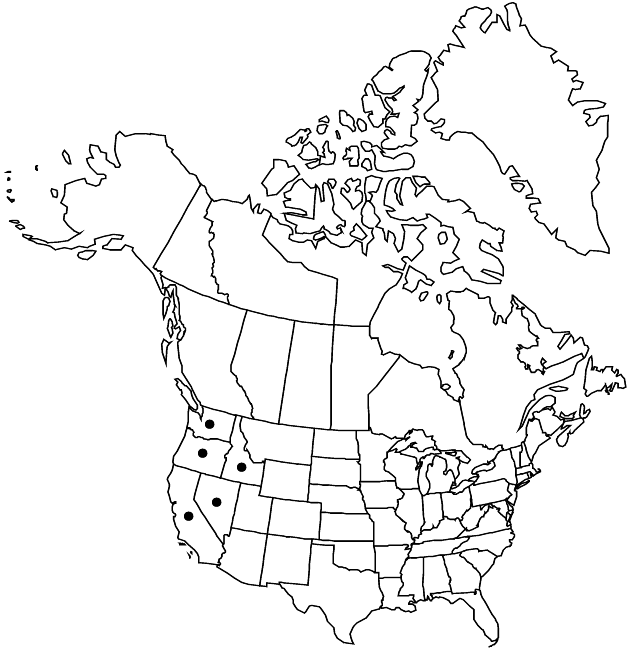Difference between revisions of "Erigeron chrysopsidis"
in A. Gray et al., Syn. Fl. N. Amer. 1(2): 210. 1884.
FNA>Volume Importer |
FNA>Volume Importer |
Revision as of 18:43, 24 September 2019
Perennials, 3–15 cm; taprooted, caudices branched. Stems erect (bracteate), evenly hispidulous to hirsute, usually minutely glandular. Leaves mostly basal (in tufts, persistent) (petioles prominently ciliate, hairs spreading, thick-based); blades linear to linear-oblanceolate, 40–70(–90) × 1–3 mm, cauline reduced to bracts (bases relatively thin, not sheathing), margins entire, coarsely ciliate, faces hispidulous to loosely strigose. Heads 1. Involucres (3.5–)4.5–7.5 × 9–17 mm. Phyllaries in 2–3 series, sparsely hispid, minutely glandular. Ray (pistillate) florets 20–60; corollas tubular, lacking laminae, or laminae yellow (sometimes fading on drying and appearing whitish or creamy), 2–10 mm, not coiling or reflexing. Disc corollas 4–4.5 mm (throats tubular). Cypselae 2–2.5 mm, 2-nerved, faces sparsely strigose (carpopodia yellowish); pappi: outer of inconspicuous setae, inner of 15–25 bristles.
Distribution

w United States.
Discussion
Varieties 3 (3 in the flora).
Intermediates between var. austiniae and var. chrysopsidis are formed in Oregon and Idaho, where their ranges overlap.
Selected References
None.
Lower Taxa
Key
| 1 | Ray (pistillate) laminae absent or not surpassing involucres; involucres 4.5–6 mm; stems hirsuto-villous | Erigeron chrysopsidis var. austiniae |
| 1 | Ray laminae well developed (surpassing involucres); involucres 3.5–7.5 mm; stems hirsuto-villous or strigose | > 2 |
| 2 | Involucres 3.5–5.5 mm; ray corolla laminae 4–7 mm; stems strigose to hirsuto-villous | Erigeron chrysopsidis var. brevifolius |
| 2 | Involucres 5–6.5(–7.5) mm; ray corolla laminae (6–)8–11 mm; stems hirsuto-villous | Erigeron chrysopsidis var. chrysopsidis |